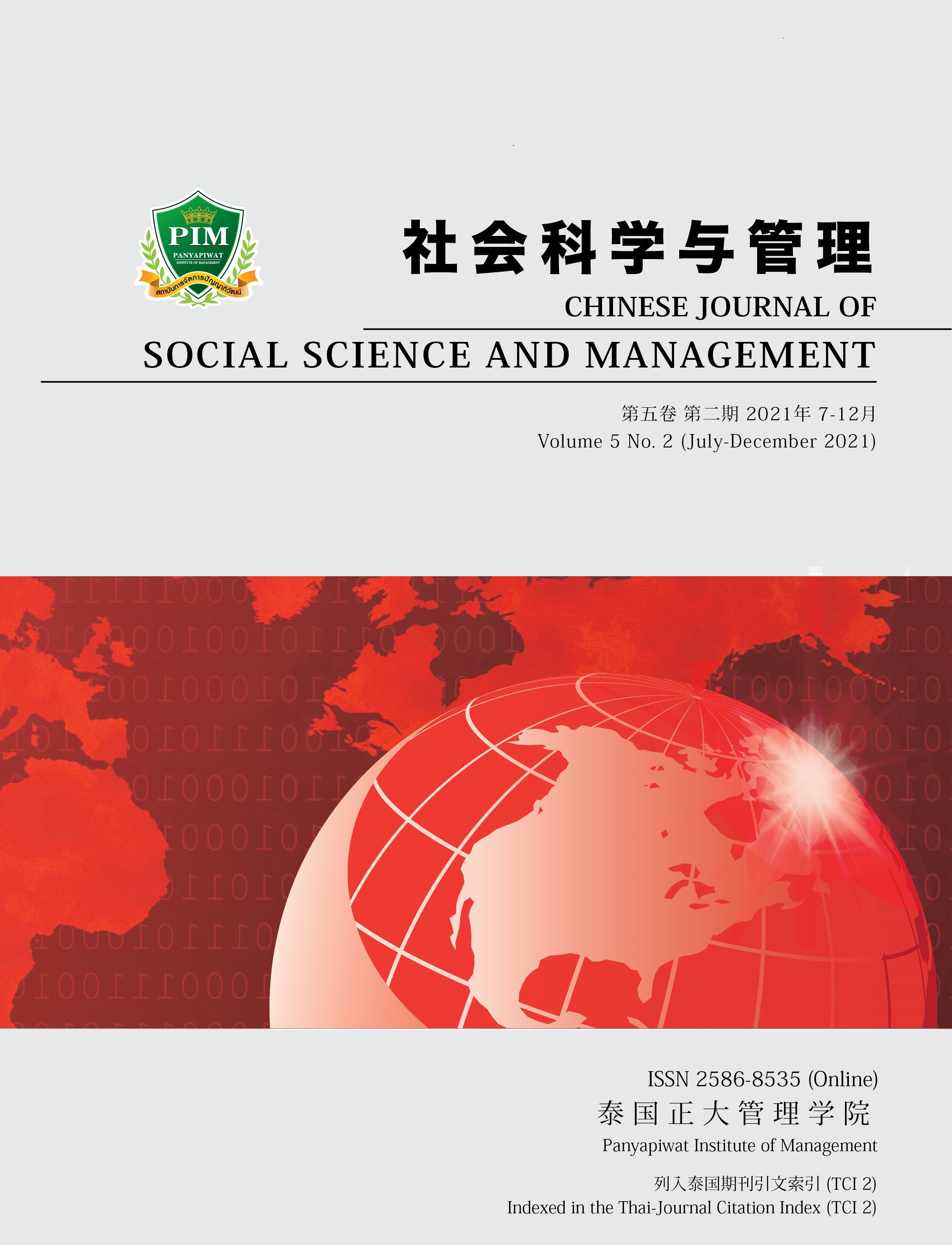THE MEDIATOR EFFECT OF CHINESE UNIVERSITY TEACHERS’ VOLUNTEERISM ON TEACHING QUALITY
Main Article Content
Abstract
Most of the existing research on teaching quality discusses the influencing factors of teacher-level factors and environmental factors. Based on the theory of social capital and the theory of social exchange, this paper explores the intermediary role of Chinese university teachers’ volunteerism between teaching input and teaching quality, and makes up for the influence and mechanism of teachers’ selfless volunteerism. Through the questionnaire survey, explore the relationship between the three variables. A total of 130 questionnaires were sent out and 122 valid questionnaires were collected, with a valid questionnaire ratio of 93.85%. The reliability and validity of the scale are up to the standard of academic research. The measurement tool was statistically counted as SPSS 24.0, and the research results were obtained by hierarchical multiple regression method: (1) Teaching input positively affects teaching quality; (2) Teaching input positively affects volunteerism; (3) Volunteerism positively affects teaching quality, and (4) Volunteerism has some mediator effect between teaching input and teaching quality.
Article Details
Chinese Journal of Social Science and Management Editorial Division
The Office of Research and Development, Panyapiwat Institute of Management
85/1 Moo 2, Chaengwattana Rd., Bang Talat, Pakkred, Nonthaburi 11120, Thailand
Tel. 02 855 01048 E-mail: cjssm@pim.ac.th
References
Adnan, O. (2019). Hope and Human Capital Enhance Job Engagement to Improve Workplace Outcomes. Journal of Occupational and Organizational Psychology, 93(1), 187-214.
Annan, K. A. (2002). Toward a Sustainable Future. Environment Science & Policy for Sustainable Development, 44(7), 10-15.
Barbara, I. (2017). Overview of Employee Engagement Literature: The What and Why Issues. In Engagement and Disengagement at Work (pp. 19-38). Berlin: Springer.
Baron, R. M., & Kenny, D. A. (1986). The Moderator-mediator Variable Distinction in Social Psychological Research: Conceptual, Strategic, and Statistical Considerations. Journal of Personality and Social Psychology, 51(6), 1173-1182.
Blau, P. M. (1964). Exchange and Power in Social Life. New York: John Wiley.
Cropanzano, R. (2005). Social Exchange Theory: An Interdisciplinary Review. Journal of Management, 31(6), 874-900.
Education Department. (2015). The Great Dictionary of Education (3rd Ed.) was Launched. Journal of Education, 15(6), 31-31. [in Chinese]
Eric, A. H., Marc, P., & Simon. W. (2018). The Value of Smarter Teachers: International Evidence on Teacher Cognitive Skills and Student Performance. Social Science Electronic Publishing, Forthcoming, 54(4), 857-899.
Feng, A. Q., Yang, P., & Lin, L. (2015). Investigation and Analysis on Teaching Input of Teachers in Local Colleges and Universities. Chinese University Teaching, 15(12), 68-74. [in Chinese]
Gouldner, A. W. (1960). The Norm of Reciprocity: A Preliminary Statement. American Sociological Review, 25(2), 161-178.
Homans, G. C. (1961). The Humanities and the Social Sciences: Joint Concern with Individual and Values the Arts Distinct from Social Science Distinctions of Social Status. American Behavioral Scientist, 4(8), 3-6.
Hu, Q. X. (2007). What is the Social Capital of Colleges and Universities——Based on & Quot; Society & Analysis of Connotation. Journal of Nantong University: Educational Science Edition, 7(2), 18-22. [in Chinese]
Lawrence, I. (2019). Teaching Standards and the Promotion of Quality Teaching. European Journal of Education, 54(293), 312-319.
Liang, Y. (2011). The Trust of Street Township Government and Community Volunteerism of Residents Based on the Empirical Investigation of Some Urban and Rural Communities in Nanjing. Journal of Nanjing Normal University, 6(4), 28-35. [in Chinese]
Liu, S., Zhang, S. L., & Gao, G. R. (2017). The Dimension Construction and Measurement of Teacher Teaching Quality Evaluation Index System. Journal of Hebei Agricultural University, 19(3), 114-118. [in Chinese]
Lv, X. N., & Bai, X. W. (2017). Impact of Job Reshaping on Job Input, Satisfaction and Job Performance of Intellectual Property Personnel in Institutions. Scientific Management Research, 35(2), 77-80. [in Chinese]
Polikoff, M. S., & Porter, A. C. (2014). Instructional Alignment as a Measure of Teaching Quality. Educational Evaluation & Policy Analysis, 36(4), 399-416.
Schaufeli, J. L. (2002). Unfairness at Work as a Predictor of Absenteeism. Journal of Organizational Behavior, 23(2), 181-197.
Scott, H., Christopher, D. N., & Russell, A. (2017). Finding Meaning in the Struggle of Work: Construct Redundancy in Work Importance Measurement. Journal of Personnel Psychology, 16(3), 1-13.
Su, Y. Q. (2009). Analysis of the Characteristics of Excellent University Teachers. Adult Education in China, 9(23), 115-116. [in Chinese]
Wesley, I., & Terry, B. (2017). Impact of Classroom Design on Teacher Pedagogy and Student Engagement and Performance in Mathematics. Learning Environments Research, 20(1), 139-152.
Wu, Z. B., & Peng, F. Y. (2017). A Summary of Teaching Input of University Teachers. Journal of Shaanxi Preschool Normal University, 33(8), 109-115. [in Chinese]
Xu, C. J., Chen, S., & Mao, M. Y. (2017). From the Perspective of Personal-Environment Matching, Teachers’ Work Input in Colleges and Universities. Research on Higher Education in Heilongjiang, 2(3), 127-131. [in Chinese]
Xu, D. D. (2015). Research on the Influence of Teachers’ Perceived Organizational Support and Job Input on Job Performance. Modernization of Education, 15(12), 15-17. [in Chinese]
Xu, G. X. (2017). The Strategy of Improving the Quality of Chinese Undergraduate Teaching. Educational Development Research, 17(5), 16-23. [in Chinese]
Zhou, H., & Long, L. R. (2004). Statistical Test and Control Method of Common Method Deviation. Progress in Psychological Science, 12(6), 942-950. [in Chinese]


